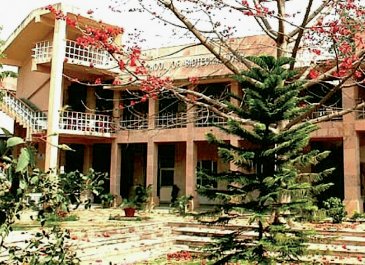3. Jawaharlal Nehru University, New Delhi
May 22, 2013 | Wednesday | Features | By BioSpectrum Bureau
3. Jawaharlal Nehru University, New Delhi
Jawaharlal Nehru University, New Delhi
The priority for the School of Biotechnology (SBT) at Jawaharlal Nehru University among the students is visible from the fact that out of the 10,000 applications for joint entrance test by 31 participating universities, more than 9,000 opted for JNU as first choice in the year 2012-13. SBT was one of the first to be founded as a special Center for Biotechnology (CBT) under the joint sponsorship of the University Grants Commission (UGC) and the Department of Biotechnology (DBT), Ministry of Science and Technology, Government of India in 1985. Subsequently, the center was elevated to that of a SBT in 2006 and since then it has been offering MSc and PhD in biotechnology.
Students are admitted to the MSc program on the basis of an all India entrance examination conducted by Jawaharlal Nehru University on behalf of 30 universities (where MSc in biotechnology program is supported by DBT) of the country. The masters program in biotechnology offered by the department has been hailed as one of the most promising course offered in the country getting the top 20-25 students every year from among nearly 20,000 students competing nationally. During the year 2012-13, the total intake of students was 30. At present, the PhD program of the school has 54 students on its rolls. There are currently 10 faculty members all having above five years of experience. The biotech related research papers published since 2010 from the school stands at nine in national journals and around 51 in the international journals. The number of national and international patents filed by the department stand at 17 and 27 respectively.
Total value of new government agencies undertaking sponsored projects commissioned between June 2010 and May 2012 was approximatly Rs 5 crore (excluding Rs 25 crore under DBT - BUILDER Program) where SBT is coordinating and taking lead in the inter school program on chemical and synthetic cardiology across five science schools in JNU. The areas cut across physical and biological sciences ranging from chemical biology to computational biology and to metabolic engineering. At the same time, the total value of new industry sponsored projects during the same time was Rs 1.3 crore.
In addition to the theory courses, the program places emphasis on practical training. The curriculum from beginning itself has emphasized on molecular, physicochemical, and engineering aspects most relevant to biotechnology, making it unique among the programs in the country. The school has state-of-the-art instrumentation facilities including a central instrumentation facility, recombinant product development facility of GLP standard, spectroscopic facility, microcalorimetric facility, microscopic facility, protein production and purification facility and biosafety level 3 facility.









